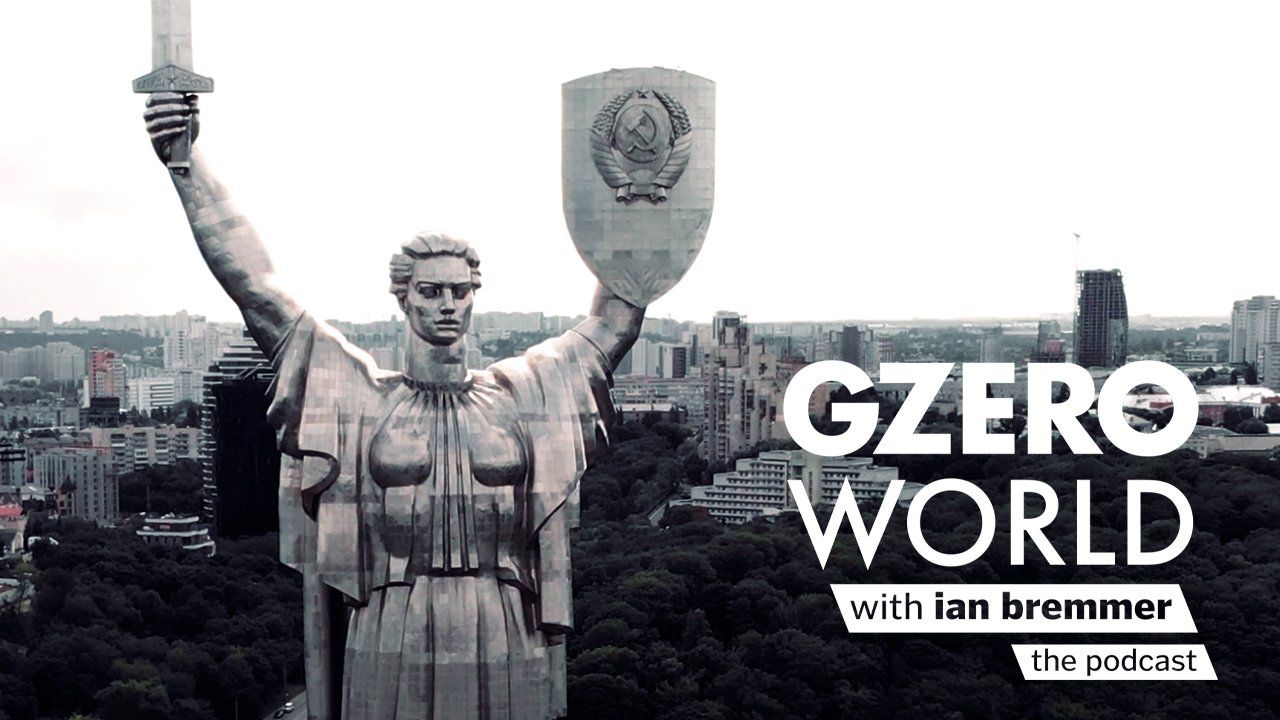GZERO World with Ian Bremmer Podcast
August 17, 2024
Listen: Ukraine is at a crossroads. It's been more than two years of brutal, deadly conflict. Despite some shifts to the front lines, neither side has a clear path to military victory, and support for the war effort is flagging amongst Ukrainians. Is it time for President Zelensky to think about negotiating an end to the war? On the GZERO World Podcast, Ian Bremmer sits with Yaroslav Trofimov, Wall Street Journal Chief Foreign Affairs Correspondent and author of "Our Enemies Will Vanish," about the challenges Ukraine faces, including waning morale and difficulties in military recruitment. Although recent polls indicate that Ukrainians are more receptive to peace talks, Trofimov warns that Russia’s endgame remains unchanged—total erasure of Ukrainian national identity. With the painful history of Soviet-Era aggression still fresh in the national memory, most Ukrainians are resolute that they won’t accept compromise unless it means the return of all internationally recognized land. Trofimov cautions that the absence of security guarantees by NATO and Western allies means Russia's assault on Ukraine is far from over.
Though Bremmer and Trofimov spoke in July before Ukraine’s incursion into Russia’s Kursk region, the larger picture remains bleak: no clear path to ending the war, hundreds of thousands of lives lost, and nearly 20% of Ukraine still under occupation. And if Donald Trump wins a second term, continued US military support is uncertain. So, is it time for Ukraine to negotiate with Russia for a swift end to the war? If not, what will be the cost of all this suffering?
Subscribe to the GZERO World Podcast on Apple Podcasts, Spotify, Stitcher, or your preferred podcast platform, to receive new episodes as soon as they're published.
From Your Site Articles
- Podcast: Russia's view of the Ukraine war: a Kremlin ally's perspective ›
- Why the world isn't fair: Yuval Noah Harari on AI, Ukraine, and Gaza ›
- Is Ukraine running out of time? Former US ambassador Ivo Daalder sizes up the Russia-Ukraine war ›
- Tucker Carlson returns: fact-checking his Ukraine episode ›
More For You
America’s new National Security Strategy confirms what Europeans have feared for months: Washington now sees a strong, unified European Union as a problem to be solved, not an ally to be supported.
Most Popular
Sponsored posts
The power of sports
What's Good Wednesdays
What’s Good Wednesdays™, December 10, 2025
Walmart sponsored posts
Walmart's $350 billion commitment to American jobs
In this episode of Tools and Weapons, Microsoft Vice Chair and President Brad Smith sits down with Ed Policy, President and CEO of the Green Bay Packers, to discuss how purpose-driven leadership and innovation are shaping the future of one of the world’s most iconic sports franchises. Ed shares how technology and community-focused initiatives, from Titletown Tech to health and safety innovations on the field, are transforming not just the game of football, but the economy and culture of Green Bay itself. He explains how combining strategic vision with investment in local startups is keeping talent in the Midwest and creating opportunities that extend far beyond Lambeau Field.
Subscribe and find new episodes monthly, wherever you listen to podcasts.
Members of security forces stand guard outside a polliong station, a week late in a special election, after the local governing party kept voting closed on election day, amid accusations of sabotage and fraud, in a presidential race still too close to call as counting continues, in San Antonio de Flores, Honduras, December 7, 2025.
REUTERS/Leonel Estrada
More than a week after Hondurans cast their ballots in a presidential election, the country is still stuck in a potentially-dangerous post-election fog.
© 2025 GZERO Media. All Rights Reserved | A Eurasia Group media company.
